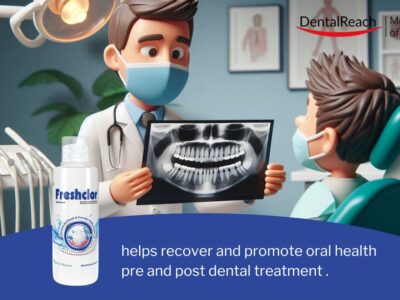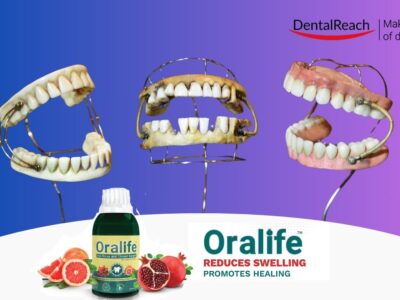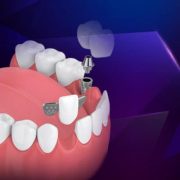Introduction
Maintaining good oral health is essential for overall health and quality of life. Dental treatment planning plays a vital role in achieving and maintaining optimal oral health. A comprehensive treatment plan can help prevent dental issues, address existing problems effectively, and save patients time and money in the long run. In this guide, we will discuss the different phases of dental treatment planning and how each phase contributes to the overall success of the treatment plan.

Phase 1: Acute Treatment
- Address immediate concerns: The acute phase is the first phase of dental treatment, and it is critical to address any immediate dental concerns first. Focus on treating pain, infection, or damage that requires immediate attention.
- Procedures: This phase includes procedures to alleviate pain and restore oral health, such as
- extractions,
- root canals, and
- fillings.
Phase 2: Preventive Treatment
- Importance of prevention: Prevention is key to maintaining good oral health and preventing further dental issues.
- Preventive measures: For preventing dental problems, focus on
- regular cleanings,
- fluoride treatments, and
- sealants.
Phase 3: Stabilization
- Prepare for further treatment: The stabilization phase is necessary to prepare for further treatment by addressing underlying issues.
- Procedures: This may involve procedures undertaken to ensure stability such as
- crown lengthening,
- gum therapy, or
- orthodontic treatment.
Phase 4: Definitive Treatment
- Long-term solutions: The definitive phase focuses on providing the patient with a long-term solution to their dental problems.
- Procedures: This may include prosthesis to to restore function and esthetics such as
- implants,
- bridges, or
- veneers
Phase 5: Maintenance
- Sustaining oral health: Maintenance is critical to maintaining optimal oral health after treatment.
- Actions: For long-term success, emphasize the importance of
- regular check-ups,
- regular cleanings, and
- X-rays.
The Role of Technology in Treatment Planning
Advanced tools and techniques are being used in everyday dentistry now. Technology has revolutionized the dental treatment planning process, providing dentists with more accurate and effective treatment planning tools. Examples:
- Digital x-rays for accurate diagnosis and
- intraoral scanners for precise impressions.
The Benefits of Comprehensive Treatment Planning
- Prevention and targeted solutions: A comprehensive dental treatment plan offers preventive measures and targeted solutions for optimal results.
- Time and cost savings: By following a comprehensive treatment plan, patients can save time and money in the long run by avoiding extensive procedures and additional treatments.
Dental Treatment Plan: Ensuring Quality and Transparent Patient Care
- Initial Consultation: The first appointment involves a thorough examination, history-taking, and diagnostic tests to formulate a rigorous treatment plan.
- Tailored Written Treatment Plan: Provide a written treatment plan that educates the patient, outlines findings, addresses concerns, and proposes an oral health maintenance plan.
- Delineating Treatment Options and Educating Patients: Respect patient views and expectations, explain treatment options, and present associated benefits, risks, and fees.
- Adapting to Patient's Needs and Clinical Changes: Consider patient decisions, maintain records, and be flexible to alter the treatment plan if needed.
- Ensuring Patient Understanding and Informed Consent: Determine patient understanding, use open-ended questions, and obtain signed copies of the treatment plan for clarity and consent.
Complete Dentistry: Addressing Esthetic and Functional Issues
- Understanding Two Patient Populations: Dentists treat patients with esthetic and functional issues, requiring identification and treatment of both types of problems.
- Importance of Complete Treatment Planning: Complete dentistry aims to eliminate disease and dysfunction while focusing on optimal esthetics.
The Process of Complete Dentistry
- 2D Functional-Esthetic Analysis: Evaluate bacterial, functional, and esthetic issues using factors of stable occlusion and conducting a smile analysis.
- 3D Treatment Planning: Translate 2D solutions into 3D diagnostic wax-ups to evaluate and make necessary changes for ideal restorations.
- Provisional Prototypes and Definitive Restorations: Utilize provisional prototypes as guides for tooth preparation and verify functional and esthetic corrections before creating ideal restorations.
Sequencing Treatment for Optimal Care
- Consider Extensive Dentistry: Sequencing care can address immediate and deferrable needs while considering budgetary constraints.
- Interim Restorations: Use temporary solutions until definitive restorations can be completed.
Conclusion
Achieving predictable outcomes through comprehensive treatment planning should be a goal of all dentists. Complete treatment planning plays a vital role in meeting patients' needs and ensuring successful dental care. By conducting a comprehensive examination, interpreting the results, and following the stages of complete dentistry, dentists can address bacterial, functional, and esthetic concerns.
Treatment plans can be customized to accommodate immediate and deferrable needs, allowing for optimal sequencing of care. Following proven protocols enhances predictability and reduces the risk of failures, resulting in long-lasting, beautiful, and functional outcomes for patients. Dental treatment planning, backed by advanced technology and patient involvement, empowers patients on their dental journey, promoting optimal oral health and overall well-being.




















Comments